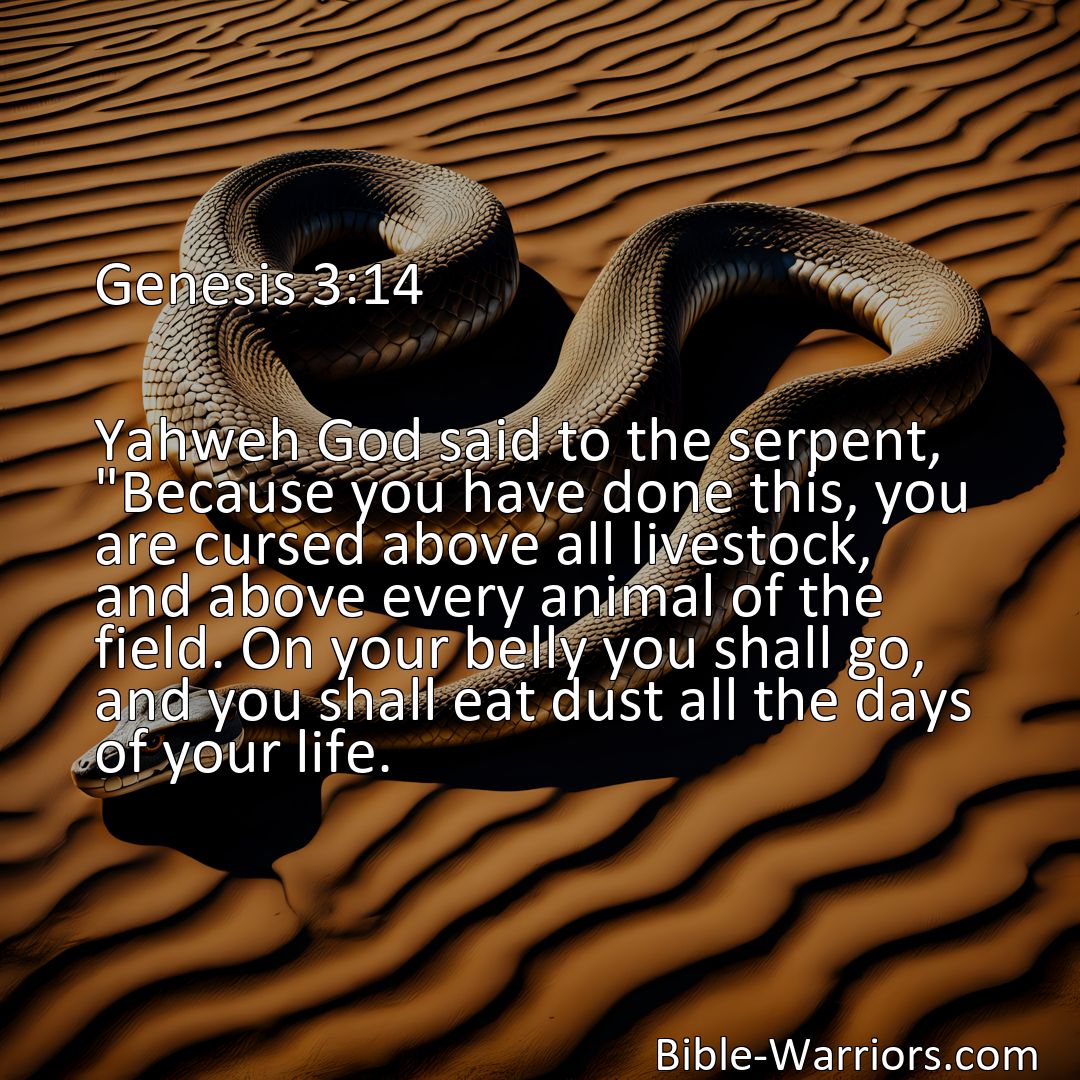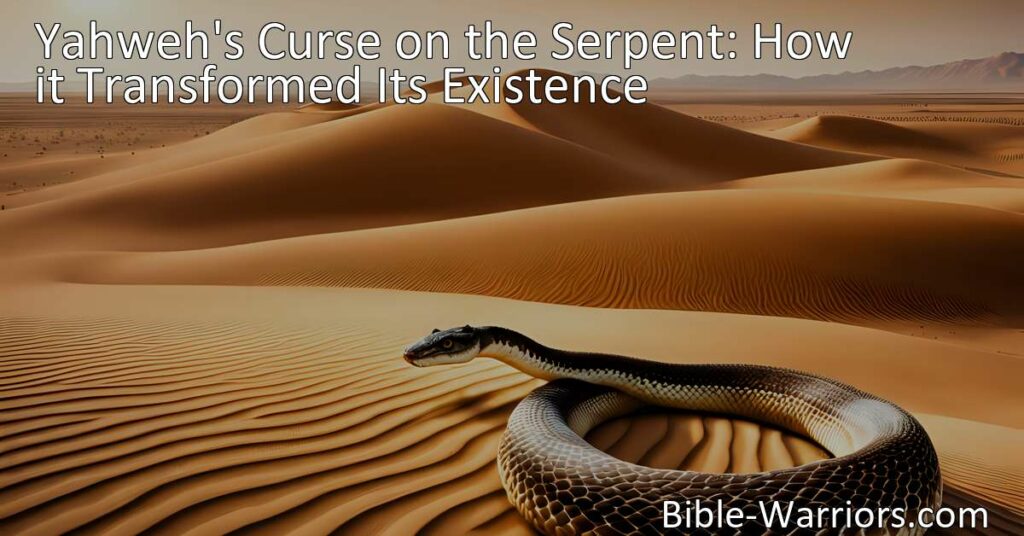Genesis 3:14 – Yahweh God said to the serpent, “Because you have done this, you are cursed above all livestock, and above every animal of the field. On your belly you shall go, and you shall eat dust all the days of your life.
The serpent’s curse in the book of Genesis transformed its existence, impacting how we perceive and understand these creatures. Yahweh’s punishment caused the serpent to lose its limbs and crawl on its belly, forever changed from its former glory. This cautionary tale teaches us about the consequences of deception and the importance of honesty, reminding us to choose righteousness and avoid the temptation to deceive others.
Table of Contents
In the book of Genesis, there is a fascinating story that tells of Yahweh’s curse upon a serpent. This curse not only changed the fate of the serpent, but it also had a profound impact on the way we perceive and understand these creatures today. Let us delve into this intriguing tale and explore how Yahweh’s curse transformed the existence of the serpent.
The story begins with Adam and Eve, the first human beings created by Yahweh. They resided in the Garden of Eden, a paradise filled with abundant beauty and harmony. In this paradise, the serpent played a significant role as it tempted Eve to eat the forbidden fruit from the Tree of Knowledge. Eve, deceived by the serpent’s cunning words, took a bite and then persuaded Adam to join her in this act of disobedience against Yahweh’s command.
Upon discovering their disobedience, Yahweh called upon them, questioning their actions. Adam and Eve, feeling the weight of their guilt, blamed one another for their transgressions. However, Yahweh, being all-knowing, was well aware of the serpent’s role in their downfall. As a result, He decided to curse the serpent for its deceitfulness, uttering the profound words, “Because you have done this, you are cursed above all livestock, and above every animal of the field.”
This curse bestowed upon the serpent was beyond a simple punishment; it was a transformative act that forever changed the nature of this creature. According to Yahweh’s words, the serpent was condemned to crawl on its belly, forever detached from its former glory. No longer would it possess legs or the ability to walk in an upright manner. The serpent’s very existence was altered, forcing it to maneuver on its belly, a stark contrast to its initial form.
Additionally, Yahweh decreed that the serpent would “eat dust all the days of its life.” This statement implies not only a physical change in the serpent’s diet but also a metaphorical representation of its diminished state. By consuming dust, the serpent symbolically devours its pride and is perpetually reminded of its fall from grace. It serves as a constant reminder of its deceitful actions and the consequences it brought upon itself.
Moreover, Yahweh’s curse on the serpent carries a timeless message that extends beyond this biblical narrative. It teaches us a valuable lesson about the consequences of deception and the importance of honesty and integrity. The serpent’s punishment is a warning for all beings to choose righteousness and avoid the temptation to deceive others. It serves as a reminder that our actions have consequences, and the ripples of deceit can have far-reaching effects.
In the immediate context of the story, this curse on the serpent had a significant impact on its relationships with other creatures. While the serpent was initially regarded as a highly exalted and wise creature, its role shifted after the curse. Its new form, crawling on its belly, presented vulnerability and weakness. Other animals were no longer in awe of its former might. Instead, they saw the serpent with caution, aware of its deceitful tendencies.
But beyond this immediate impact, Yahweh’s curse on the serpent had lasting implications for generations to come. The serpent became a symbolic representation of evil, temptation, and deceit. This narrative establishes a dichotomy between the serpent and mankind, serving as a reminder of the inherent struggle between good and evil that exists within humanity. The serpent’s curse thus teaches us to be wary of deceptive forces and encourages us to strive for righteousness.
In conclusion, Yahweh’s curse on the serpent was a transformative event that forever altered its existence. This biblical narrative serves as a cautionary tale, reminding us of the consequences of deception and the importance of honesty. The serpent’s curse demonstrates the far-reaching effects of our actions and the impact they can have on our relationships. Additionally, it symbolizes the eternal battle between good and evil. By studying and understanding this ancient story, we can gain insights into our own lives and strive to make choices that align with righteousness and integrity.
Freely Shareable Bible Verse Image Genesis 3:14
I hope this Bible verse image brings you hope and peace. Share it with someone who needs it today!



